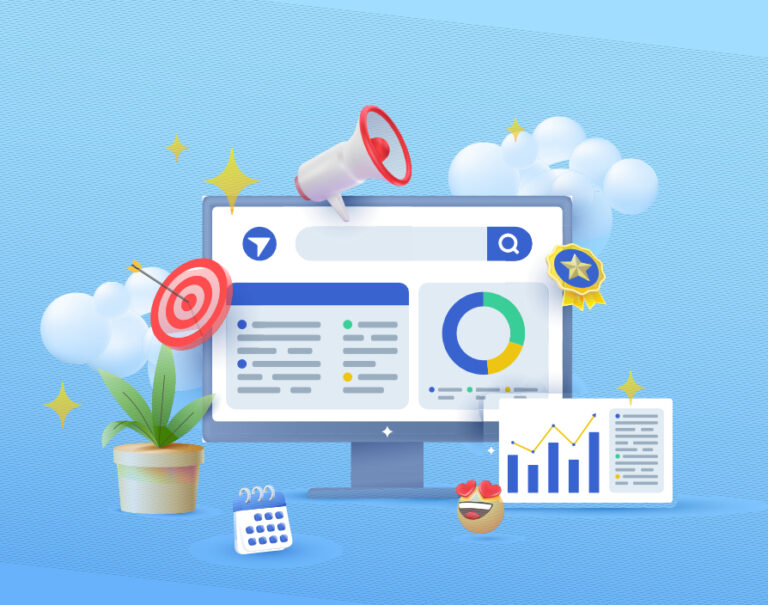Small businesses account for over 99.2% of businesses in the UK. In many ways they are the lifeblood of the UK economy and communities, but they are facing unprecedented challenges. Inflation, supply chain disruptions and energy costs are all putting huge pressure on small businesses across sectors, but the biggest challenge they face is often much simpler: standing out.
In today's hyper-connected, technology-optimized world, digital marketing has become essential for businesses that want to be market leaders. But when competing with larger companies with bigger marketing teams and deep pockets, it can be tough for small businesses to stay ahead.
The year 2024 will see the increased adoption of AI, 5G technology and cloud computing, ushering in a new era of advanced digital marketing strategies that give small and medium-sized businesses the opportunity to turn the tide and leapfrog their competitors.
We’ve put together some practical ways small businesses can adopt advanced digital marketing strategies and succeed.
Mastering Search Engine Optimization
SEO is the cornerstone of a successful digital marketing strategy. By mastering SEO, small businesses can make it easy for potential customers to find them online. Leveraging technology efficiently can help in many ways. Most small businesses thrive in marketing because it allows them to reach a local customer base. Therefore, if you are in charge of your small business' marketing strategy, it is important to prioritize claiming and optimizing your “Google My Business” listing.
Additionally, it's important to ensure your business name, address, and phone number (NAP) are consistent across all online platforms. Encouraging customers to leave reviews can help improve your local search rankings.
Set yourself up for success across devices
Most internet users access content on the go through their mobile devices, so it’s important to have a mobile-friendly website.
Most businesses are well aware that they need to ensure their website is responsive and loads quickly on smartphones and tablets, but to really stand out from the competition, they could also consider optimizing their content for voice search, focusing on long-tail keywords (very specific, less-searched phrases, usually consisting of three or more words) and natural language phrases that people are likely to use when talking to a voice-enabled device like a smartphone, smart speaker or virtual assistant.
Get the most out of your email marketing
It's no wonder that many small business owners are jaded by email marketing – why spend so much money on content that's going straight to the spam folder? But when done well, email marketing remains a powerful tool for small businesses. Advanced email marketing includes segmentation, personalization, and automated workflows. These strategies ensure the right message reaches the right audience at the right time, driving engagement and conversions.
Businesses can leverage an email marketing automation platform that enables advanced personalization. Segment your email lists based on demographics, purchase history, browsing behavior, and engagement levels, and customize email content and messaging for each segment to increase relevance and engagement. Supported by integrated artificial intelligence. By incorporating machine learning algorithms into your email marketing platform, you can analyze customer data and predict future behavior. Use predictive analytics to send targeted emails at the right time, such as personalized product recommendations and re-engagement campaigns to inactive subscribers.
Of course, small businesses need to comply with email marketing regulations (e.g., GDPR, CAN-SPAM Act) and best practices to maintain high deliverability rates and avoid being flagged as spam. Use email authentication protocols like SPF (DomainKeys Identified Mail) and DMARC (Domain-based Message Authentication, Reporting, and Conformance) to authenticate your domain and get your content seen.
All-in on automation and AI
AI doesn't just help with email marketing. Marketing automation tools can streamline your marketing efforts, saving you time and resources in a variety of areas. Small businesses can also use automation for lead nurturing and customer relationship management, making marketing more personalized and efficient.
As small businesses grow, manual marketing processes become increasingly difficult to manage. Marketing automation tools enable scalability by allowing companies to handle large volumes of leads and customers without the need for additional resources. Automated workflows adapt to changing business needs and accommodate growth without sacrificing efficiency.
Nowhere is this more evident than in lead management: automated lead scoring and nurturing workflows help identify high-quality leads and guide them through the sales funnel with customized content and timely follow-up, resulting in higher conversion rates and increased revenue.
AI also enables personalization at scale. Marketing automation allows small businesses to deliver personalized experiences to large audiences. By segmenting contacts based on demographics, behavior, and preferences, businesses can send targeted messages that resonate with each recipient. Personalization leads to increased engagement, customer satisfaction, and most importantly, loyalty.
Get rewarded
Combining new technologies with strategic thinking provides small businesses with an unparalleled opportunity to innovate their digital marketing strategies and gain a competitive edge in today's rapidly changing marketplace. Embracing these technologies and innovations can help businesses achieve new levels of creativity, efficiency and effectiveness in their marketing efforts, propelling them ahead of their competitors and into the future.
.


